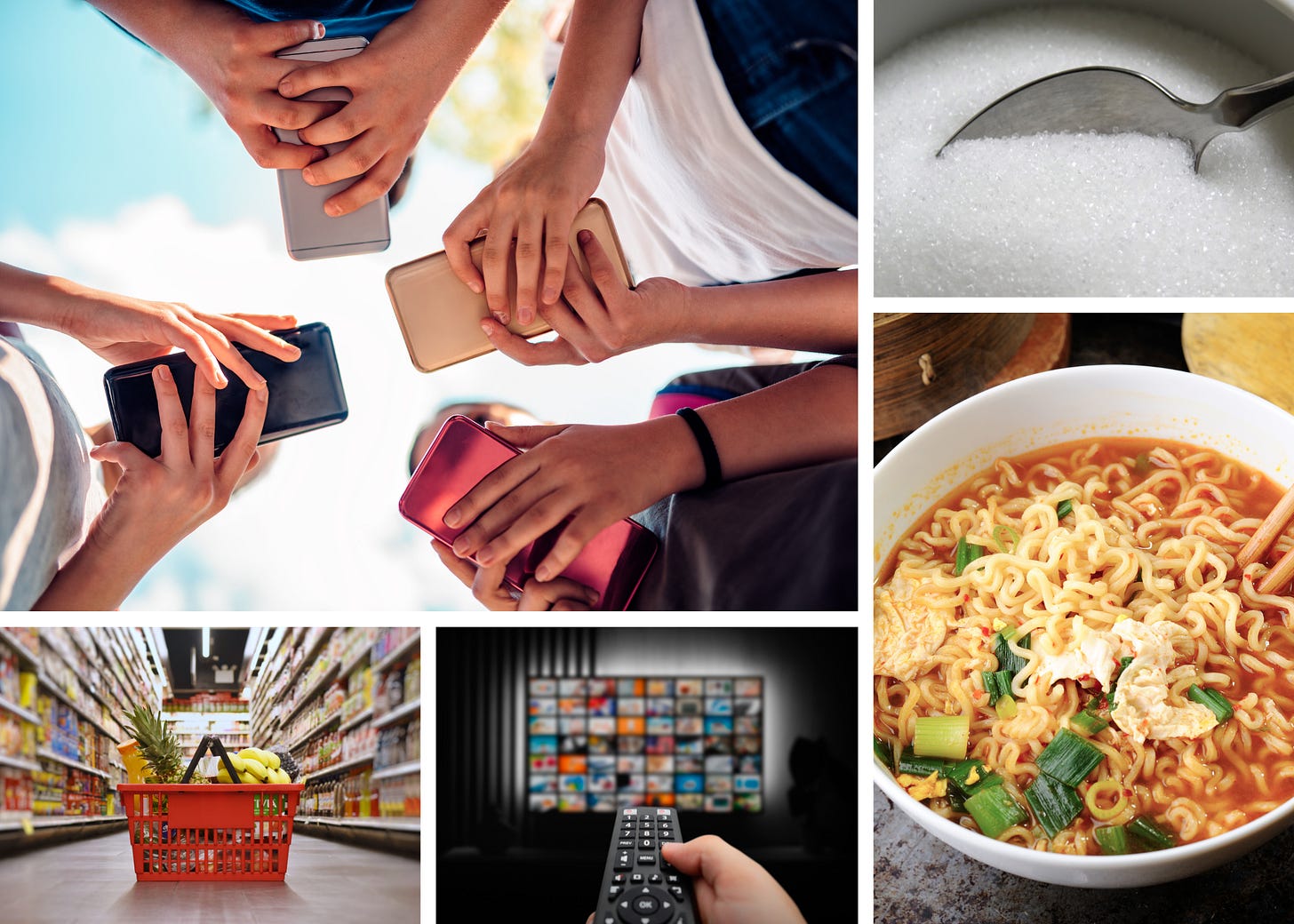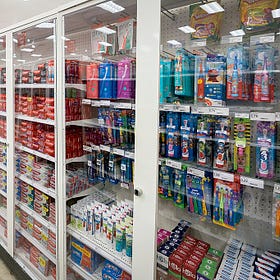Tuesday's Assorted Links
Banning smartphones, sugar taxes, grocery shopping, Olympic pricing, and ramen
Hi y’all! Here are five stories from this week that contained some neat applications of economic principles or are related to teaching:
Middle school kids in Norway have been feeling mentally healthier and performing better academically since a public health initiative banned smartphones in schools [The Boston Globe | Original Study]
Should sugar be taxed like cigarettes? [TIME]
Inflation is making Americans multiple stores on a typical grocery run [The Wall Street Journal]
Peacock will raise its prices by $2 per month ahead of the summer Olympics [CNBC]
Americans spent more than $1.6 billion on ramen between April 2023 and April 2024, up 72% since 2000 [Associated Press]
Walk into any major pharmacy or grocery store today, and you'll notice everyday hygiene products like razors, deodorant, and toothpaste locked up behind plexiglass cases. Meanwhile, essential food items like milk, bread, and produce remain freely accessible. Why the discrepancy?
This trend reflects one of economics' oldest puzzles: the paradox of value, also known as the diamond-water paradox. It dates back to Adam Smith's "The Wealth of Nations" (1776), where he pondered why non-essential diamonds are more expensive than essential water.
The Diamond-Water Paradox in Retail Security
Walk into any major pharmacy or grocery store today, and you’ll likely see a perplexing sight: everyday hygiene products like razors, deodorant, and toothpaste locked behind plexiglass cases as though they were precious gems. Meanwhile, essential food items like milk, bread, and produce remain freely accessible. Why the discrepancy?
Are you an educator looking for ways to introduce this week’s newsletter into your classroom? Sign up for the Classroom Edition of Monday Morning Economist to get assessments and lesson plans delivered straight to your inbox every week.




